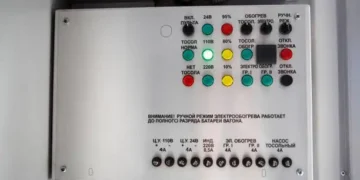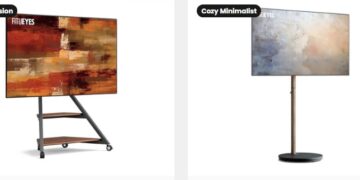In an age where information is power, privacy has become more vulnerable than ever. With technological advancements making it easier to listen in on private conversations, protecting oneself against intrusion is no longer optional. Whether you’re concerned about workplace misconduct, safeguarding your home, or monitoring a situation discreetly, a hidden audio recorder can be a powerful and effective solution.
What Is a Hidden Audio Recorder?
A hidden audio recorder is a compact, discreet device designed to capture audio without drawing attention. Unlike traditional recording devices, these gadgets are often embedded in everyday objects such as USB drives, power banks, pens, or even smoke detectors. Their stealth design allows them to operate unnoticed, making them ideal for gathering critical audio evidence when transparency is not possible or practical.
These recorders are used in various scenarios where subtlety is essential—like investigating suspected infidelity, workplace harassment, or elder abuse in care homes. The modern hidden audio recorder is built with high-end microphones and noise reduction technology to ensure crystal-clear sound recording even in challenging environments.
Why You Might Need a Hidden Audio Recorder
The reasons people turn to hidden audio recorders vary, but most center on the need to verify suspicions, document events, or ensure safety. Suppose you’re a business owner suspecting an internal leak, or a tenant dealing with a harassing landlord. In these cases, using a hidden audio recorder can help document audio proof that supports your claims.
Parents often use them to monitor babysitters or caregivers, ensuring their children are treated properly. Likewise, journalists may use discreet recorders to document interviews in environments where pulling out a visible microphone would be intrusive or unsafe.
Legal Considerations Before Using a Hidden Audio Recorder
Before using a hidden audio recorder, it’s essential to understand the laws surrounding audio surveillance in your area. Laws vary by state and country, and not adhering to these regulations could lead to legal consequences.
In the United States, the legality of recording conversations depends on whether the state follows one-party or two-party consent rules. In one-party consent states, only one person involved in the conversation needs to be aware of the recording. In two-party (or all-party) consent states, everyone involved must give their approval.
Always research local legislation or consult legal counsel before using a hidden audio recorder to ensure your actions comply with privacy laws.
How to Choose the Right Hidden Audio Recorder
Not all hidden audio recorders are created equal. When selecting a device, several features should be considered based on your needs. Look for options that offer extended battery life, high sound clarity, and ample storage capacity. Devices with voice-activated recording are also highly effective as they capture only when sound is detected, saving both power and storage.
Size and concealability also matter. The ideal hidden audio recorder should blend seamlessly into your environment. A device embedded in a functional object, like a wall charger or key fob, can remain undetected while serving its purpose efficiently.
Practical Applications in Personal and Professional Settings
In personal life, a hidden audio recorder can be invaluable in documenting verbal abuse or manipulation in toxic relationships. In legal disputes like custody battles or property disagreements, recorded conversations can serve as key evidence when permitted by law.
In professional environments, employers might use them to monitor compliance with company policy, prevent insider threats, or investigate misconduct. Security professionals and private investigators also rely on hidden recorders to gather information discreetly and effectively.
Another growing application is in academic environments where students or researchers may want to record lectures or interviews without causing distraction.
Benefits of Using a Hidden Audio Recorder
The primary advantage of using a hidden audio recorder is the ability to obtain information without altering the behavior of the people being monitored. Unlike visible devices, hidden recorders don’t alert subjects, which leads to more honest and unfiltered conversations.
Additionally, modern devices are designed for ease of use, often requiring just a single button to activate. They also offer long-term recording options, making them suitable for extended surveillance sessions.
With advanced sound detection and high fidelity recording, a quality hidden audio recorder captures even faint conversations clearly, ensuring you don’t miss crucial details.
Final Thoughts on Using a Hidden Audio Recorder Responsibly
While a hidden audio recorder is a powerful tool for surveillance and protection, it must be used ethically and legally. The intent behind using the device should always be justifiable—whether it’s to protect a loved one, gather evidence of wrongdoing, or ensure personal safety.
Choosing the right recorder and understanding the legal landscape are key steps in using this technology responsibly. As long as it’s used with discretion and integrity, a hidden audio recorder can offer peace of mind in an increasingly unpredictable world.
In a society where trust is often fragile, having the means to discreetly document interactions can be incredibly empowering. Whether it’s for safety, justice, or truth-seeking, this small device can have a significant impact.



























